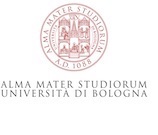MICHAEL PURI
|
 |
|
“If human beings suddenly ceased imitating, all forms of culture would vanish.” René Girard’s striking statement about mimesis may seem, at first, to be an overstatement. But once we begin to examine the history of this concept in western thought—which stretches back to Plato and Aristotle, looms large again in the eighteenth century, and undergoes a Cambrian explosion in the twentieth and twenty-first—we might feel that Girard could have gone even further. Indeed, one would be hard-pressed to identify a discourse in any of the arts, humanities, and social sciences in which the idea of mimesis has not played a significant role. In this three-day seminar we will orient ourselves within the vast mimetic universe by following its constellation of politics, technology, and music. On the first day we inquire into the cultural function of mimesis, asking how it has been imagined to mediate between self and other. On the second day we shift to politics and read about the way mimesis has been understood to facilitate a collusion between media and fascism. Day three is devoted to music. We will learn about recent theories that describe the embodied mind as a technology enabling music to replicate, modulate, and circulate, together with the affects, meanings, and values that cling to it. We will conclude by considering how the “plasticity” that Philippe Lacoue-Labarthe ascribes to mimesis may have helped to bind politics, technology, and music into a nexus. Michael Puri is Associate Professor (Critical & Comparative Studies), Director of Graduate Studies at the University of Virginia. |



